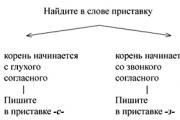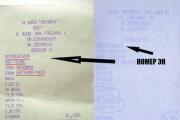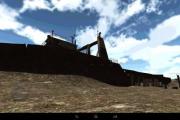Print_r со сворачиванием узлов. Функция print() - Выводит строку Первые признаки у мужчин print php type
This is a simple function for printing debug comments that I didn"t think of for a long time. Maybe it"ll serve you good too.
Function
printd
($str
) {
if ($debug
) { echo
$str
; }
}
// ...
If ($valueCalculatedEarlierInTheScript
==
3
) {
doSomethingWithNoOutput
();
printd
("doSomethingWithNoOutput() has executed."
);
}
?>
It"s mostly just to make sure everything is running without having to go through everything and put in echo "Step #whatever has executed" whenever something mysterious isn"t working.
I have a small utility run from the command line that processes a potentially huge list of files. As it can take hours to complete, I stuck a
Statement in the body of the main loop to prove that something was happening.
For reasons unknown to me, the utiliity suddenly started buffering the output such that it printed nothing until completion, defeating the purpose of the running monitor. Adding flush() statements did nothing. The problem was solved by using
Fputs(STDOUT, ".");
But I have no idea why.
I have written a script to benchmark the several methods of outputting data in PHP: via single quotes, double quotes, heredoc, and printf. The script constructs a paragraph of text with each method. It performs this construction 10,000 times, then records how long it took. In total, it prints 160,000 times and records 16 timings. Here are the raw results.
Outputted straight to browser--
Single quotes: 2,813 ms
...with concatenation: 1,179 ms
Double quotes: 5,180 ms
...with concatenation: 3,937 ms
heredoc: 7,300 ms
...with concatenation: 6,288 ms
printf: 9,527 ms
...with concatenation: 8,564 ms
Outputted to the output buffer--
Single quotes: 8 ms
...with concatenation: 38 ms
Double quotes: 8 ms
...with concatenation: 47 ms
heredoc: 17 ms
...with concatenation: 49 ms
printf: 54 ms
...with concatenation: 52 ms
A nice graph of the script"s output can be found here:
http://i3x171um.com/output_benchmarks/ob.gif
So what should you choose to print your text? I found several things out writing this.
First, it should be noted that the print and echo keywords are interchangeable, performance-wise. The timings show that one is probably an alias for the other. So use whichever you feel most comfortable with.
Second, if you"ve ever wondered which was better, the definitive answer is single quotes. Single quotes are at least four times faster in any situation. Double quotes, while more convenient, do pose a debatably significant performance issue when outputting massive amounts of data.
Third, stay away from heredoc, and absolutely stay away from [s]printf. They"re slow, and the alternatives are there.
The source of my script can be found here:
http://i3x171um.com/output_benchmarks/ob.txt
DO NOT RUN THE SCRIPT ON THE INTERNET! Run it instead from localhost. The script outputs ~45 megabytes of text in an html comment at the top of the page by default. Expect the benchmark to take ~45 seconds. If this is too long, you can change the amount of iterations to a lower number (the results scale accurately down to about 1,000 iterations).
I wrote a println function that determines whether a \n or a
should be appended to the line depending on whether it"s being executed in a shell or a browser window. People have probably thought of this before but I thought I"d post it anyway - it may help a couple of people.
function
println
($string_message
) {
$_SERVER
[
"SERVER_PROTOCOL"
] ? print
"$string_message
"
: print
"$string_message\n"
;
}
?>
Examples:
Running in a browser:
Output: Hello, world!
Running in a shell:
Output: Hello, world!\n
Be careful when using print. Since print is a language construct and not a function, the parentheses around the argument is not required.
In fact, using parentheses can cause confusion with the syntax of a function and SHOULD be omited.
Most would expect the following behavior:
if (print("foo"
) && print("bar"
)) {
}
?>
But since the parenthesis around the argument are not required, they are interpretet as part of the argument.
This means that the argument of the first print is
("foo") && print("bar")
And the argument of the second print is just
For the expected behavior of the first example, you need to write:
if ((print
"foo"
) && (print
"bar"
)) {
// "foo" and "bar" had been printed
}
?>
An update to the println function I wrote below, this is a more efficient, correct and returns a value (1, always; (print)).
Function
println
($string_message
=
""
) {
return isset($_SERVER
[
"SERVER_PROTOCOL"
]) ? print
"$string_message
"
.
PHP_EOL
:
print
$string_message
.
PHP_EOL
;
}
?>
Mvpetrovich of 2007 could just use single quotes as his string delimiters (see the example in the current documentation).
It"s not ALWAYS appropriate, but generally it is best (the Zend Framework coding standards have a good take on this). It yields a number of interesting benefits:
1: Nobody will be tempted to write functions to replace backticks or other characters with double quotes. Such functions may cause a (negligible) loss of efficiency, and maybe other undesired effects.
2: You will be able to use double quotes without escaping. This is recommended (although not required) for HTML and XML attributes, as well as quoted text.
3: The script will hit the browser very slightly slightly faster since PHP doesn"t have to scan through the string looking for variables, escaped characters, curly braces or other things.
4: Your code gets ten times easier to read. (as mvpetrovich pointed out)
If, in spite of these four excellent benefits, you really MUST still use double quotes to delimit boring old string constants (and seriously, why would you?), you could use the slightly less favourable single quotes as delimiters for most markup languages.
HTML served as HTML will even let you lay out unquoted attributes (yuck).
It should also be noted though that if you are just printing bare strings, you may as well shut off the php parser. The quickest way to send a string is to write it as plain text, OUTSIDE of the php tags. This will also make your code look excellent in a lot of syntax highlighters.
There are few disadvantages to doing this, if any. Output buffering still works. All your classes and objects and includes remain in place. Your script runs faster. World peace is obtained.
В php есть жизненно необходимые функции, без которых разработчику просто не обойтись. Речь пойдет о print_r и немного про var_dump 🙂
Зачем нужны print_r и var_dump?
print_r чаще всего используют для массивов и основной задачей является именно узнать, какие ключи (если это ассоциативный массив или с большим уровнем вложенности многомерный) и значения находятся в массиве. Записывается следующим образом:
Нам на экраны выдаст следующий результат:
Array ( => 1 => 2 => 3 => 4 => 5 => 6 => 7 => 8 => 9)
Несмотря на свою простоту, данный массив сложно читается, а если бы его структура состояла из нескольких уровней, то найти нужную информацию было бы очень затруднительно. К счастью, в HTML есть тег, который поможет с этим справиться, это тег pre :
Echo "
"; print_r($arg); echo "";
Как видно из кода, print_r записывается между тегами pre, и в результате видим следующую картину:
Array ( => 1 => 2 => 3 => 4 => 5 => 6 => 7 => 8 => 9)
Особенность тега pre
еще и в том, что он отображает все символы пробелов, если вы указываете много пробелов, они записываются как один:
«По умолчанию, любое количество пробелов идущих в коде подряд, на веб-странице показывается как один.»
То есть, такая запись:
Привет как дела?
Привет как дела?
Для массивов считаю что print_r это инструмент номер один 🙂
Зачем нужен var_dump?
Для обычных переменный, которые содержат строки, числа и т.д. есть простые способы вывода — echo и print . Но иногда этого недостаточно, в PHP у каждого значения есть свой тип . Есть правда неприятная особенность, тип может меняться, и запись:
Echo $a = 15 + "19";
Выдаст следующее значение:
Хотя мы передали одно число и одну строку. var_dump позволяет узнать к какому типу данных относится значение:
int сокращение от integer — целое число. Записывается не сложнее чем print_r:
Echo "
"; var_dump($arg); echo "";
Тип данных это важная вещь, но лично я print_r`ом пользуюсь гораздо чаще.
print_r и var_dump в 1С-Битрикс
В битриксе есть файл, который выполняется при каждой загрузке страницы — init.php , и для того чтобы каждый раз не писать много кода, можно записать 2 простые функции:
"; print_r($arg); echo ""; } function vd($arg) { echo "
"; var_dump($arg); echo ""; }
После записи можно передавать переменную, и что самое главное, массив. Запись для вызова будет следующая.
10 years ago
Be careful when using print. Since print is a language construct and not a function, the parentheses around the argument is not required.
In fact, using parentheses can cause confusion with the syntax of a function and SHOULD be omited.
Most would expect the following behavior:
if (print("foo"
) && print("bar"
)) {
}
?>
But since the parenthesis around the argument are not required, they are interpretet as part of the argument.
This means that the argument of the first print is
("foo") && print("bar")
and the argument of the second print is just
For the expected behavior of the first example, you need to write:
if ((print
"foo"
) && (print
"bar"
)) {
// "foo" and "bar" had been printed
}
?>
So what should you choose to print your text? I found several things out writing this.
First, it should be noted that the print and echo keywords are interchangeable, performance-wise. The timings show that one is probably an alias for the other. So use whichever you feel most comfortable with.
Second, if you"ve ever wondered which was better, the definitive answer is single quotes. Single quotes are at least four times faster in any situation. Double quotes, while more convenient, do pose a debatably significant performance issue when outputting massive amounts of data.
Third, stay away from heredoc, and absolutely stay away from [s]printf. They"re slow, and the alternatives are there.
DO NOT RUN THE SCRIPT ON THE INTERNET! Run it instead from localhost. The script outputs ~45 megabytes of text in an html comment at the top of the page by default. Expect the benchmark to take ~45 seconds. If this is too long, you can change the amount of iterations to a lower number (the results scale accurately down to about 1,000 iterations).
В прошлый раз мы разбирали с вами тему массивов в php , а сегодня мы с Вами разберем функцию, которая называется print_r() . Данная функция является отладочной, и предназначена нам для того, чтобы мы могли в удобном виде просмотреть информацию о переменной. Почему я вначале темы затронул массивы, а это потому, что лучше всего при помощи этой функции просматривать массивы. Сейчас Вы в этом убедитесь.
$array
= array(5
, 23
, "Denis"
)
;
print_r($array)
;
?>
Мы использовали массив из прошлого урока, и применили к нему функцию print_r . Показывать результат выполнения этой функции я не вижу смысла, просто напишите этот код и посмотрите результат в браузере. Там мы увидим, ключевое слово Array , и в скобках будут последовательно перечисляться индексы и их значения. Таким образом, мы можем просматривать даже самые большие массивы при помощи одной строчки. Это все, что я хотел рассказать про эту функцию. Вот такая сегодня получилась маленькая, легкая, а самое главное полезная статья. До скорой встречи!
Для своего удобства я написал аналог функции print_r . Сразу покажу, чем она отличается:
UPD: добавлена разметка и стиль для корректного отображения пустых массивов и объектов.
UPD: добавлено отображение количества дочерних элементов массива или свойств объекта (число справа от названия ключа массива).
UPD: добавлена возможность сворачивать дочерние массивы массива (клик по количеству дочерних).
UPD: добавлено отображение файла и строки, откуда была вызвана функция.
UPD: теперь параметры в функцию можно передавать не массивом, а поштучно, причём в любом порядке.
Что функция умеет
- выводить скалярные переменные, массивы, объекты, ресурсы;
- выделять цветом тип данных;
- выделять цветом область видимости свойств;
- явно отображать значения булевых переменных и NULL ;
- выводить тип ресурса;
- автоматически обрезать длинные строки;
- выводить массив в виде дерева, с возможностью сворачивания узлов (ради чего всё это было затеяно);
- выводить дерево в свёрнутом виде или развёрнутым до определённого ключа;
- отображать файл и строку, откуда была вызвана функция;
- засекать время, прошедшее между двумя вызовами функции;
- искать текст в ключах и значениях массивов.
И самое главное
Никаких внешних зависимостей!
Как использовать
Нужно подключить файл nf_pp.php
Include "nf_pp.php";
и можно пользоваться
Pp($val);
Опции
Вторым аргументом в функцию можно передать массив параметров.
Pp($val, array("trimString" => 0));
Доступны такие опции:
UPD: мне надоело передавать параметры в функцию массивом и я сделал, чтобы их можно было передавать прямо так, причём в любом порядке. Пример:
Pp($val, 300, "КириЛлиЦА");
Pp($val, "КириЛлиЦА", 0);
Pp($val, "КириЛлиЦА");
Парамертры определяются по типу. Если передано число, то это — trimString , если булев параметр, то это — autoCollapsed ; если строка или массив, то это — autoOpen .
Примеры использования
Просто вывести массив
Pp($val);
Вывести массив в свёрнутом виде
Pp($val, array("autoCollapsed" => TRUE));
Вывести массив, раскрытый до ключей «c» и «subarray»
Pp($val, array("autoOpen" => array("c", "subarray")));
Вывести массив, раскрытый до ключа «c»
Pp($val, array("autoOpen" => array("c")));
Pp($val, array("autoOpen" => "c"));













